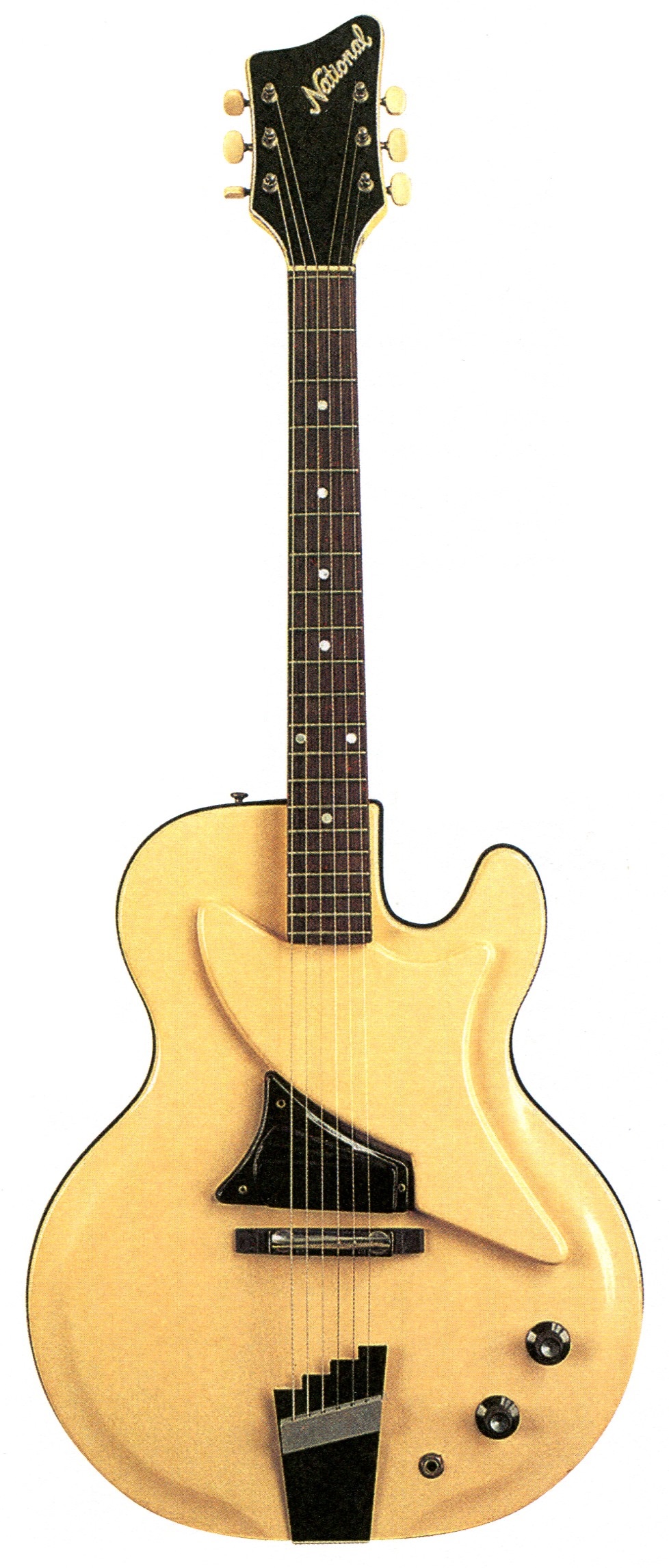National Studio 66

The fiberglass body of the Studio 66, along with it’s oyster-shell pickup shape and curvy pickguard, exemplified the modern, innovative flair of National’s guitars in the early 1960s.
National had a reputation for innovation, going back to it’s origins in the late 1920s as the company that invented the resonator guitar. Founded in California, the company moved headquarters to Chicago in the mid 1930s and changed it’s name to Valco. One of the early players in the electric guitar arena, Valco had foreseen the rise of the electric guitar in the 1930s and in the postwar years focused almost exclusively on electrics.
By the end of the 1950s, National had a reputation for flashy but, for the most part, cheaply made instruments. In the early 1960s, buyers’ concerns about quality were diverted by a series of new models with bodies of molded fiberglass.
While the Studio 66 stood out visually from the guitar of any other maker, the company’s financial troubles, along with the inferior performance quality of it’s instruments, doomed National’s fiberglass models to a five-year lifespan.
